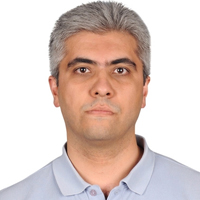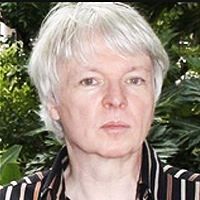Table of Contents
Factors affecting physical activity of recuperating alcoholics in Asumbi-Homabay rehabiliation center, Kenya
Published on: 24th October, 2018
OCLC Number/Unique Identifier: 7923860537
Background: Alcoholism is a widespread problem in Kenya and is associated with severe impacts on health and quality of life of the individual. Physical activity is an affordable and sustainable adjunct treatment option for recuperating alcoholics; however its’ rarely used in rehabilitation of alcoholics in Kenya.
Objective: This qualitative study sought to elicit facilitators and barriers that influence the practice of physical activity amongst recuperating alcoholics under rehabilitation.
Methods: A focus group guide was utilized to gather views and perceptions of 15 alcoholics and 5 health professionals through focus group discussions. Constant comparative approach was used to analyze verbatim transcripts obtained from in-depth interviews. This analysis entailed three stages including open, axial and selective coding.
Results: Recuperating alcoholics’ recognized various forms of physical activity to promote mental and physical health during their rehabilitation. Health professionals and significant others considerably supported the recuperating alcoholics to practice physical activity however physical activity facilities and facilitation was lacking in Asumbi rehabilitation center.
Conclusions: The rehabilitation centres should have physical activity experts and facilities that can offer individualized physical activity services and support needed by the recuperating alcoholics.
Parental Role in Adolescent Substance Abuse Prevention
Published on: 28th August, 2018
OCLC Number/Unique Identifier: 7815112848
Background: There is a huge gap in the U.S. health care system when it comes to the prevention of substance abuse and addiction, specifically involving adolescents. It has been determined through literature review that parents in Utah are not informed about/knowledgeable of/aware of the current usage of alcohol/drugs in the adolescent population in this area or the inherent risks involved with consumption/use/misuse/abuse/addiction.
Aim: The overarching aim of the doctoral project was to prevent Utah County middle school students from harmful alcohol and drug consumption by involving parents in prevention efforts. The prevention goals of this project included: increased parental knowledge of the brain disease of addiction, warning signs of adolescent drug use, what to do if their child is already using, and increased parental self-efficacy on communicating with teens on this subject.
Design: For parents to be productively involved, barriers were broken down through education. The DNP student completed a 15-minute presentation at five separate parent meetings that took place annually during middle school registration at Lehi Jr High.
Population: The education was for parents, foster parents, guardians, etc. of first-year middle school students only; an estimated 420 participants were in attendance.
Data collection and analysis: A pre-and post- combined self-efficacy and knowledge test was given to the attendees. Data was gathered from 117 appropriately completed tests and analyzed using a paired t-test. The results were studied to evaluate effectiveness of the program relating to parental self-efficacy and knowledge.
Findings: The presentation ultimately increased parental self-efficacy and knowledge (p-value <0.01) which in turn increases protective factors and decreases risk factors associated with adolescent substance abuse.
Conclusions: The DNP project was successful, and the results assisted in the refinement of the presentation for sharing on a mass level to all Jr. High schools in Utah County, Utah.
Alcohol-related poisonings in Russia: Obfuscated facts
Published on: 25th January, 2018
OCLC Number/Unique Identifier: 7317597135
The problem of the alcohol misuse in Russia is well known; but there is a tendency to exaggerate it, which seems to be used to disguise shortages of the healthcare and public assistance. In this way, responsibility for the relatively low life expectancy is shifted onto the patients, who are supposed to drink excessively. In parallel, there is a tendency to exaggerate successes of the anti-alcohol campaign (1985-1989) and to trivialize the harm caused by the campaign e.g. mass consumption of surrogates [1]. The bias can be illustrated with the example of papers by Yuri Razvodovsky [2-5]. Yuri asked me per e-mail to write a “friendly” letter to the Editor referring to his article. An excerpt from the correspondence is presented here as documentary evidence (Figure 1). In reply, I cited the phrase: “The official statistical data do not support the claims that the… аnti-alcohol campaign contributed to the dramatic growth in fatal poisonings by non-beverage alcohol surrogates” [4] and commented that I witnessed mass poisonings with window cleaner in 1988. Considering the large scale of the window cleaner sales, it was knowingly tolerated by authorities. Poisonings with methanol and organochlorides (used e.g. in dry cleaning) were known to occur as well. Yuri replied that “there are two realities: one, which we both witnessed, and another-official statistics” (Figure 1). Obviously, Razvodovsky should have discussed in his articles the “realities we both witnessed”, i.e. common knowledge and observations, otherwise his papers are misleading.

HSPI: We're glad you're here. Please click "create a new Query" if you are a new visitor to our website and need further information from us.
If you are already a member of our network and need to keep track of any developments regarding a question you have already submitted, click "take me to my Query."
























































































































































